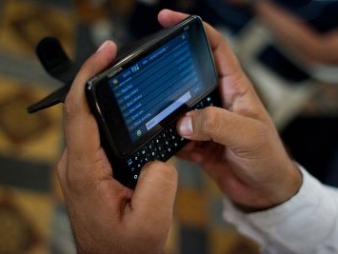There is finally a decision from a federal court regarding the question of whether or not employers must pay overtime to non-exempt employees for time spent on their smartphones after hours.
The court in the Northern District of the 7th Circuit in Illinois decided in Allen v. City of Chicago on December 10, 2015. In that case, non-exempt police officers working for the Chicago Police Department sued seeking overtime pay for off duty time spent working on their employer- issued BlackBerrys. The Court held that the Department did not violate the FLSA by failing to pay police officers for off-duty time working on their BlackBerrys, however, it did not issue a clear across the board win for all employers.
The Court applied a two prong test:
- Did the employees perform compensable work for which they were not paid?
- Did the employer have actual or constructive knowledge that the employees were performing compensable work without compensation?
As to the first prong, the Court held that in order to be compensable work, it had to be a task necessary to the employee’s job. The Court looked at whether the task needed to be done immediately or whether it was something that could wait until the next working hours. So not all work performed by employees on their smartphones while off duty is compensable work. Merely monitoring their emails or text messages was not considered compensable. Even if the employee was required to carry the smartphone with him/her in case of an emergency, as long as the employee was free to spend his/her off-duty time primarily for his/her own benefit without persistent interruptions, that was not considered compensable work.
As to the second prong, the Court held that there was no showing that there was a uniform culture or well-grounded understanding that off-duty smartphone work would be expected but not compensated. More importantly, there was no showing that the supervisors had specific knowledge of off-duty smartphone work being performed without compensation and those who turned in a time slip for that work were compensated. In Ohio, the 6th Circuit has held that if an employer does not know about overtime being worked without compensation, the employer has not violated the FLSA.
This is just one Court’s decision. This is just the first in what promises to be a long line of wage and hour cases dealing with nontraditional ways of working. The Department of Labor is looking at this issue and is expected to issue an opinion sometime in 2016.
Practical take away advice that may offer some protection includes:
- To the extent possible, limit issuance of smartphones or portable electronic devises to exempt employees.
- For non-exempt employees consider implementing an email curfew or other policy that prohibits or limits the use of company email off duty.
- Prohibit your exempt employees from communicating with non-exempt employees about work matters while the non-exempt employees are off-duty.
- Implement a reasonable process for employees to report uncompensated off-the-clock work.
- Monitor employees’ access of and use of company email to ensure compliance with your policies on off-duty-work emailing.
- If you know, or have reason to know, that your employees are breaching your rules on off-duty-work emailing, be sure to pay them for the time worked but counsel or discipline them for the violation. (The discipline should not be withholding pay.)
As the work place and technology evolve, employers will have to be vigilant to comply with the Fair Labor Standards Act when it comes to their non-exempt workers. The FLSA was written well before the age of instant communication by email, text and cell phone and it will be up to the courts to decide how it will be applied and interpreted. With some common sense you can build some protection against being the next test case.
If you have questions or would like legal advice on any employment law questions, please contact one of Critchfield, Critchfield & Johnston’s employment law attorneys for personal assistance.
Tagged In:Employment & LaborFSLAOvertime




